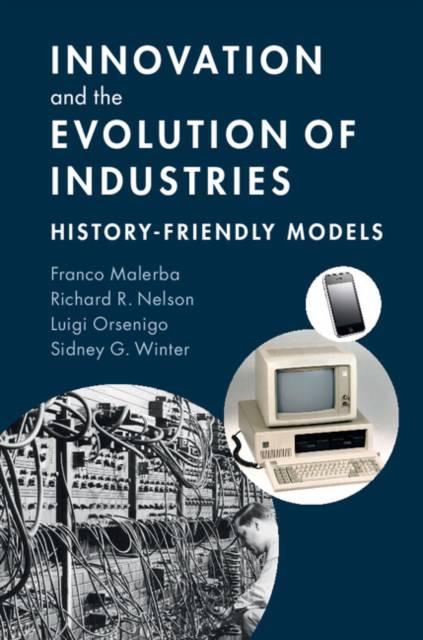
- Afhalen na 1 uur in een winkel met voorraad
- Gratis thuislevering in België vanaf € 30
- Ruim aanbod met 7 miljoen producten
- Afhalen na 1 uur in een winkel met voorraad
- Gratis thuislevering in België vanaf € 30
- Ruim aanbod met 7 miljoen producten
Zoeken
Innovation and the Evolution of Industries
History-Friendly Models
Franco Malerba, Richard R Nelson, Luigi Orsenigo, Sidney G Winter
Paperback | Engels
€ 61,95
+ 123 punten
Omschrijving
The disruptive impacts of technological innovation on established industrial structures has been one of the distinguishing features of modern capitalism. In this book, four leading figures in the field of Schumpeterian and evolutionary economic theory draw on decades of research to offer a new, 'history-friendly' perspective on the process of creative destruction. This 'history-friendly' methodology models the complex dynamics of innovation, competition and industrial evolution in a way that combines analytical rigour with an acknowledgement of the chaotic nature of history. The book presents a comprehensive analysis of the determinants and patterns of industrial evolution, and investigates its complex dynamics within three key industries: computers, semiconductors, and pharmaceuticals. It will be of great value to scholars and students of innovation and industrial change, from backgrounds as varied as history, economics and management. Its coverage of new methodological tools is also useful for students who are new to evolutionary economic theory.
Specificaties
Betrokkenen
- Auteur(s):
- Uitgeverij:
Inhoud
- Aantal bladzijden:
- 292
- Taal:
- Engels
Eigenschappen
- Productcode (EAN):
- 9781107641006
- Verschijningsdatum:
- 11/08/2016
- Uitvoering:
- Paperback
- Formaat:
- Trade paperback (VS)
- Afmetingen:
- 150 mm x 226 mm
- Gewicht:
- 430 g

Alleen bij Standaard Boekhandel
+ 123 punten op je klantenkaart van Standaard Boekhandel
Beoordelingen
We publiceren alleen reviews die voldoen aan de voorwaarden voor reviews. Bekijk onze voorwaarden voor reviews.











